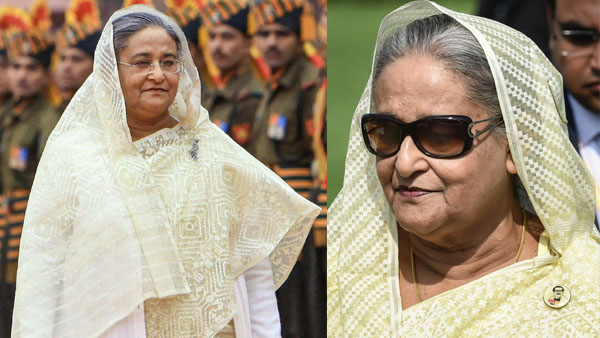By Dipak Kurmi
When Zubeen Garg’s voice fell silent on September nineteenth in Singapore, more than just a singer departed from this world. What ceased was a phenomenon that had redefined the cultural consciousness of Assam for over three decades, transforming the very understanding of what it meant to be Assamese in contemporary India. Born on November eighteenth, nineteen seventy-two, in Tura, Meghalaya, into a family where poetry and music intertwined like the rivers of his homeland, Garg emerged as a multifaceted genius whose contributions transcended the boundaries of entertainment to become instruments of cultural preservation, social commentary, and political awakening.
The magnitude of his artistic output remains staggering even in retrospect. Recording more than thirty-eight thousand songs across forty languages and dialects, mastering over a dozen instruments, composing music that ranged from traditional Bihu to rock-infused fusion, acting in and directing critically acclaimed films, Zubeen embodied the very essence of creative restlessness. Yet what distinguished him from mere prolificacy was the profundity embedded within his work. Each composition carried within it an indefinable pathos, a quality of longing and melancholy that resonated with the collective unconscious of his people. Songs like Mayabini became more than entertainment, they evolved into anthems of collective identity, expressions of emotions too complex for ordinary conversation. His prophetic words about this particular composition, that Assam should sing it when he died, proved eerily prescient as the song transformed into a vessel for communal grief following his untimely passing.
Garg’s journey from a young boy singing at the age of three under his mother Ily Borthakur’s tutelage to becoming what admirers called the Heartthrob of Assam was marked by an unwavering commitment to authenticity. Trained in tabla for eleven years under Pandit Robin Banerjee and introduced to Assamese folk traditions by Guru Ramani Rai, he possessed both classical rigor and folk spontaneity. His debut album Anamika in nineteen ninety-two arrived at a tumultuous moment in Assam’s history, when the state was convulsed by militarization and counter-insurgency operations. Yet it was precisely in this context of violence and uncertainty that Zubeen’s music offered solace and affirmation of cultural identity. He did not retreat into safe, apolitical entertainment but instead engaged deeply with the struggles and aspirations of his people.
What rendered Zubeen’s cultural impact truly transformative was his interpretation of Assamese identity itself, one that was inclusive rather than exclusionary, humanistic rather than parochial. Following in the footsteps of the legendary Bhupen Hazarika, Garg understood that Assamese culture could flourish only by embracing the state’s diverse communities rather than erecting walls between them. His linguistic nationalism, what might be termed his Jatiyotabad, was remarkably sensitized and compassionate. He proudly proclaimed Assamese as a language as ancient and valuable as Hindi, defended it against imposition, yet simultaneously called himself half-Bengali with genuine affection, recalling his formative years in Karimganj. He sang in Bengali with the same passion he brought to Assamese compositions, becoming a beloved figure in Bengali cinema. This ability to maintain fierce pride in one’s own culture while remaining open to others, to protect jati, mati, and bheti without demonizing marginalized communities, distinguished him as an artist-intellectual of rare wisdom.
The incident that perhaps best encapsulates his philosophy occurred when an organizer objected to him singing Hindi songs at a Bihu event. Zubeen’s response was characteristically uncompromising yet revealing. He walked off stage mid-performance, declaring that the organizer could not dictate to him because he, not the organizer, had sung sixteen thousand songs in twenty-five years. This was not arrogance but a profound assertion of artistic freedom and the understanding that genuine cultural strength comes from voluminous creation rather than defensive gatekeeping. His belief that protecting Assamese culture required producing quality art in abundance rather than policing who could sing what represented a mature, confident approach to cultural preservation.
Politically, Zubeen positioned himself as a social leftist, openly admiring Che Guevara at a time when such declarations required courage in an increasingly right-wing political climate. His songs like Xunere xojua poja and Politics nokoriba bondhu contained stark critiques of political exploitation, yet his activism extended beyond mere rhetoric. He was deeply involved in environmental causes, educational initiatives, and healthcare projects. Stories abound of his compassion toward those requiring medical treatment and his support for orphanages. He also vehemently opposed the caste system, identifying proudly as a secularist whose heart remained oriented toward the poor and suffering. His denunciations of divisive politics that fragment society were articulated with eloquent passion, making him not merely an entertainer but a public intellectual whose voice carried moral weight.
The national recognition came with his Bollywood hit Ya Ali from the film Gangster in two thousand six, which catapulted him to pan-Indian fame. Yet remarkably, after this success, he chose to return to Assam rather than pursuing greater commercial opportunities in Mumbai. He left his Mumbai flat deliberately forlorn, declaring that a king never leaves his kingdom, referring to Assam as his true hearth and home. This decision exemplified his priorities, fame and wealth were secondary to remaining rooted in the soil that nourished his creativity. His live performances were legendary, not for their polish but for their raw emotional intensity. The electricity that permeated venues when he performed, the way audiences would erupt at the opening lines of his songs, revealed a connection that transcended the transactional relationship between performer and audience. He was not simply entertaining them, he was articulating their collective soul.
Yet beneath the magnificent public persona existed a profoundly human individual, vulnerable to the same anxieties and sorrows that afflict ordinary people. The loss of his sister in a tragic accident created a wound that never fully healed, manifesting in the pervasive melancholy that characterized much of his music. The relentless schedule of performances, the constant travel, the pressure to deliver consistently, the fear of obsolescence that haunts all artists, these burdens weighed heavily on his sensitive temperament. The world of celebrity, with its extractive managers and handlers, offered little space for processing grief or nurturing one’s inner life. What he could not adequately express in conversation flowed out magnificently as melody, transforming personal anguish into art that resonated with millions who heard their own unspoken pain reflected in his compositions.
The circumstances surrounding his death, the investigations and questions that followed, revealed how deeply his people loved him and how desperately they needed answers. The formation of a Special Investigation Team, the second post-mortem, the state mourning and twenty-one-gun salute, these were not merely bureaucratic gestures but expressions of a society’s need to honor one who had given them so much. The cancellation of the North East Festival following his passing symbolized the irreplaceable void his absence created. In death, remarkably, he achieved what eluded many in life, he united everyone in shared grief, transcending the religious and linguistic fractures that have increasingly deepened in Assam in recent years.
Now, more than two months after his passing, the question confronting Assam is whether Zubeen’s vision for a more just, inclusive, and culturally vibrant society will endure beyond the immediate shock of his death. Will his fearless advocacy for artistic freedom, his inclusive interpretation of Assamese identity, his commitment to social justice, his fierce protection of linguistic dignity without descending into chauvinism, will these values take root and flourish? Or will they fade as memories inevitably do, their urgency diminishing, their details becoming hazy? The establishment of archives like the thirty-five thousand cassettes and CDs collected by a devoted admirer in Guwahati, the statues erected in his honor, the bridges named after him, these are important. Yet the truest memorial would be the continuation of the values he embodied.
Zubeen Garg’s legacy resides not merely in his extraordinary catalogue of songs or his contributions to cinema but in the consciousness he helped shape. He demonstrated that regional pride and cosmopolitan openness need not be contradictory, that speaking truth to power is an artist’s responsibility, that cultural preservation requires creation rather than mere protection, and that genuine greatness involves using one’s platform to uplift the marginalized rather than consolidating one’s own position. For those with diasporic identities who often felt marked as outsiders, his music served as a balm, his inclusive vision offering belonging. For younger artists across Northeast India, he blazed a trail showing that one need not abandon one’s roots to achieve national recognition. For ordinary Assamese people, he remained their voice, their conscience, their champion.
The river of his music, to borrow a fitting metaphor, continues to flow even after its source has been stilled. It flows through the countless musicians he inspired, through the audiences who continue to find solace in his compositions, through the social movements he supported, through the cultural institutions he influenced. Legends never die, as one tribute correctly observed, they live on through their art. Yet they also live on through the values they championed and the consciousness they helped awaken. Whether Zubeen Garg’s Assam, an Assam that is culturally confident yet inclusive, socially conscious yet joyful, proud of its heritage yet open to others, can be realized depends on those who remain. His voice has fallen silent, but the echo of what he represented continues to reverberate. How long and how far that echo carries will determine whether his legacy endures as a living force or fades into mere nostalgia. For now, as thousands whisper his name daily, as Mayabini continues to be sung across the state, as new generations discover his vast body of work, the undying voice of Zubeen Garg remains a guiding presence in Assam’s ongoing cultural journey.
Zubeen Garg was not a template but a revolution—one-man proof that authenticity can unite even the most fragmented societies. On his birthday, we honor not just the man but the idea he represented: that music can be both prayer and protest, that belonging need not exclude, and that one voice, singing fearlessly for justice and love, can reshape the consciousness of an entire region. The melodies he created continue to flow like the Brahmaputra—eternal, unbroken, vast. And in that endless current, Zubeen da remains forever young, forever singing, forever ours.
(the writer can be reached at dipakkurmiglpltd@gmail.com)




